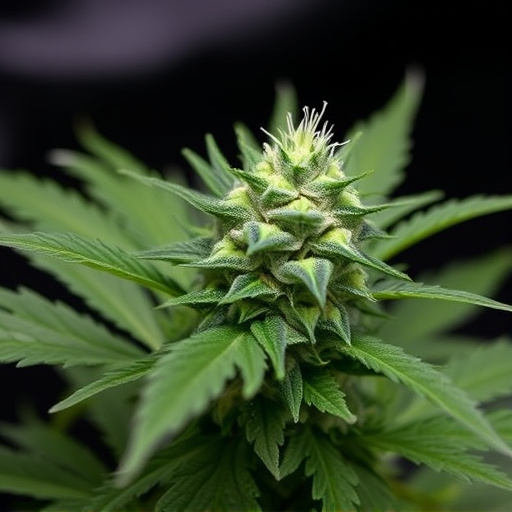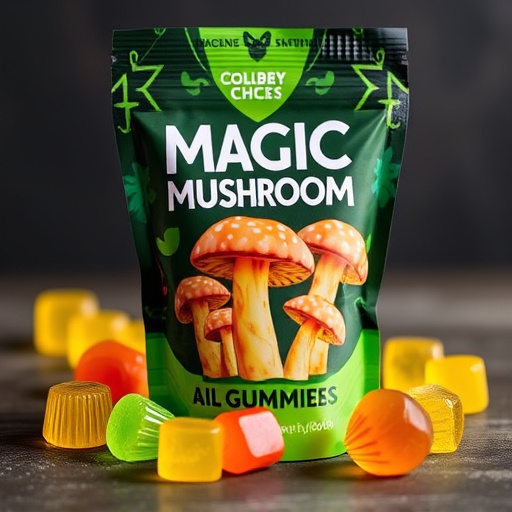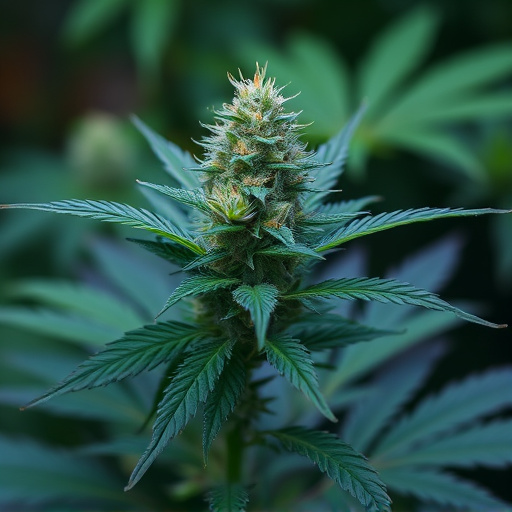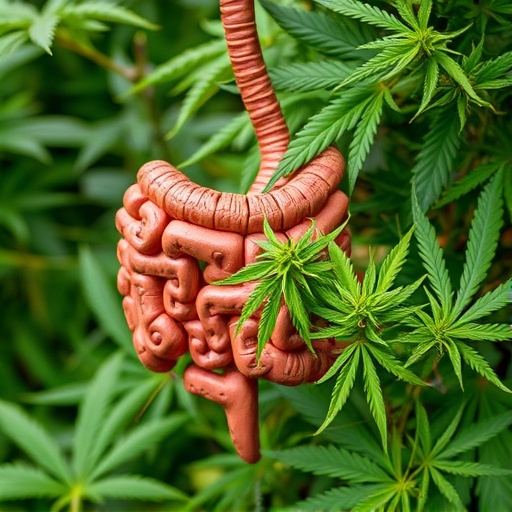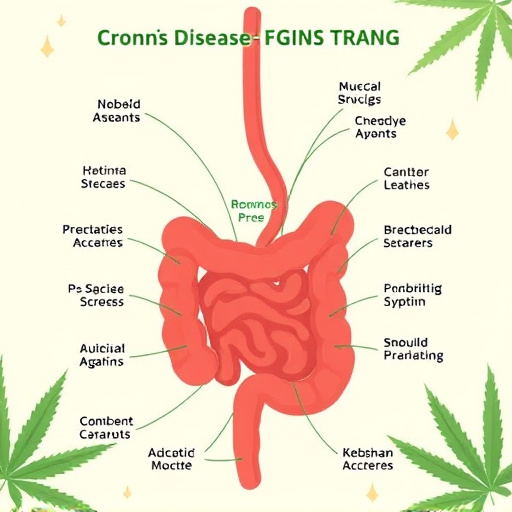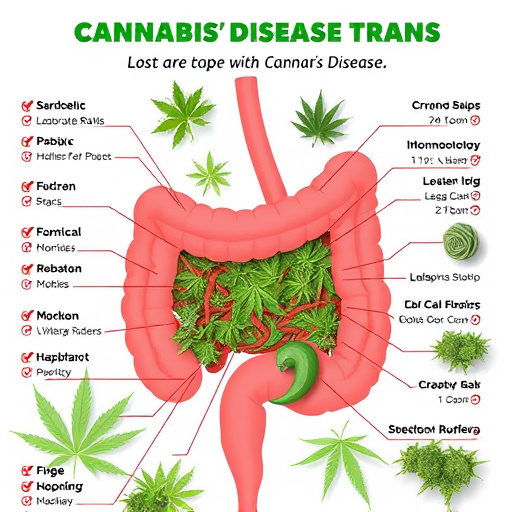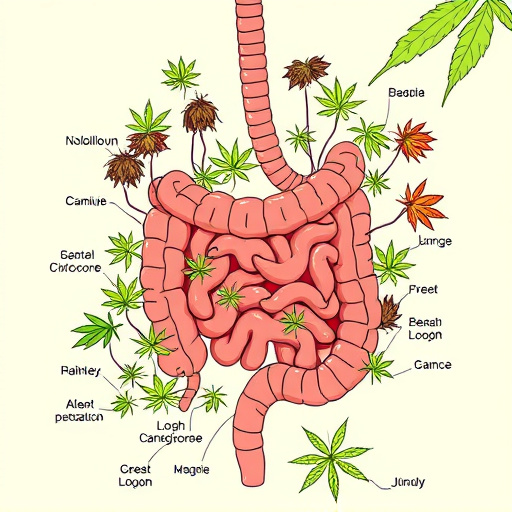Cannabis overdoses, though rare, can be distressing, especially for individuals with Crohn's disease or similar conditions. Potency, consumption method, and personal tolerance play significant roles in overdose risk, with edibles posing a unique danger due to their delayed effects. Symptoms range from anxiety and paranoia to physical manifestations like rapid heartbeat and nausea, potentially leading to hallucinations. Early recognition is critical for management. Hydration, balanced nutrition, calming environments, gentle activities, and tailored cannabis strains (balancing THC and CBD) are key recovery strategies. Effective Crohn's disease management involves understanding how different strains impact symptoms, setting consumption limits, and maintaining healthcare provider communication.
“Cannabis overdoses, while rare, can lead to uncomfortable and sometimes serious symptoms, particularly for individuals managing conditions like Crohn’s Disease. Understanding how and why these overdoses occur is the first step towards recovery. This guide delves into the world of cannabis intoxication, detailing symptoms, risks, and strategies for easing discomfort. Additionally, it offers insights on choosing appropriate cannabis strains and setting limits to prevent future incidents, specifically tailored to individuals with Crohn’s Disease.”
- Understanding Cannabis Overdoses: Symptoms and Risks
- Strategies for Recovery: Managing Unpleasant Effects
- Avoiding Future Incidents: Choosing Strains and Setting Limits with Crohn's Disease in Mind
Understanding Cannabis Overdoses: Symptoms and Risks
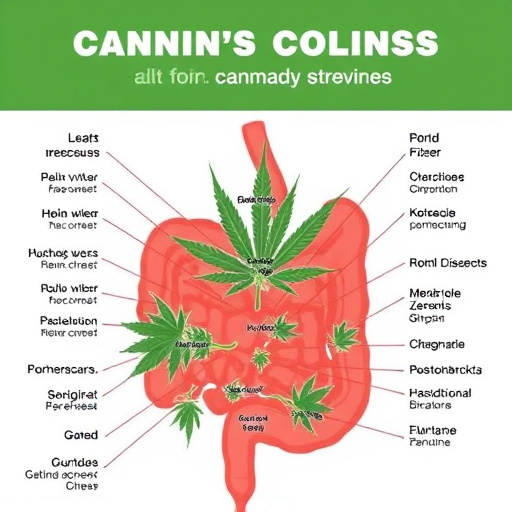
Cannabis overdoses, while less common than overdoses on other substances, can still occur and are often characterized by an intense and uncomfortable experience. Understanding what constitutes an overdose and its potential symptoms is crucial for users, especially those with underlying health conditions like Crohn’s disease.
The risk of a cannabis overload varies based on several factors, including the individual’s tolerance, the potency of the strain consumed (higher THC content can lead to more severe reactions), and the method of consumption. For instance, edibles can have delayed effects, making it easy to consume too much. Individuals with Crohn’s disease or other gastrointestinal disorders might be at higher risk due to potential interactions between cannabis and their medication. Symptoms may include severe anxiety, paranoia, rapid heartbeat, dizziness, nausea, and in extreme cases, hallucinations. Recognizing these signs early is vital for a safe recovery.
Strategies for Recovery: Managing Unpleasant Effects
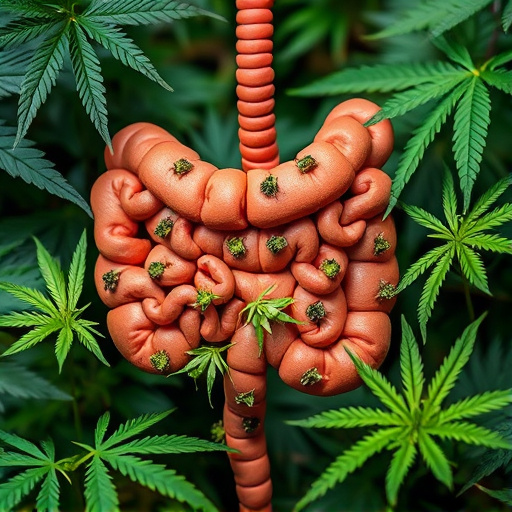
When experiencing unpleasant effects from a cannabis overdose, several strategies can aid in recovery. One approach is to focus on hydration and nutrition; drinking plenty of water and consuming easily digestible foods can help mitigate symptoms associated with Crohn’s disease, a condition often linked to cannabis use. Balanced meals rich in vitamins and minerals are essential for supporting overall health during this period.
Additionally, seeking comfortable and calm environments can be beneficial. Reducing sensory stimuli by dimming lights, turning off loud noises, and creating a peaceful atmosphere may help alleviate anxiety or paranoia, common unwanted effects of high-potency cannabis strains. Engaging in light physical activities, such as gentle stretching or short walks, can also aid in easing discomfort and promoting better sleep once the acute phase has passed.
Avoiding Future Incidents: Choosing Strains and Setting Limits with Crohn's Disease in Mind
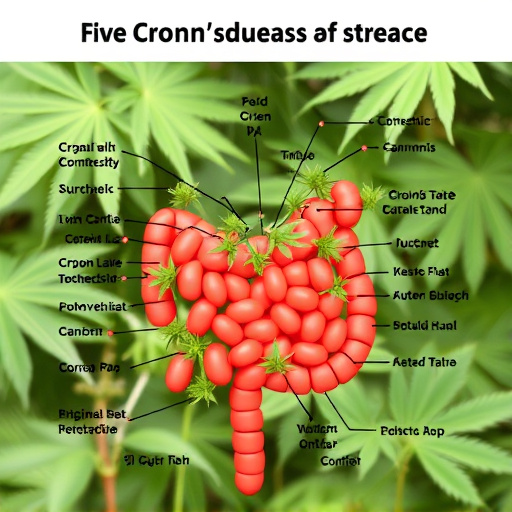
When managing Crohn’s Disease, it’s crucial to understand how different cannabis strains can impact your symptoms and overall health. Certain strains known for their anti-inflammatory properties may offer relief from pain and inflammation associated with the condition. However, those high in THC, the primary psychoactive compound, can sometimes exacerbate gastrointestinal issues or induce anxiety—common Crohn’s disease complications.
To avoid future incidents, it’s essential to choose cannabis strains with a balanced THC-to-CBD ratio. CBD, known for its calming effects without psychoactive properties, can help manage inflammation and pain while mitigating the potential negative impacts of THC. Setting limits on consumption quantity and frequency, especially when trying new strains, is equally vital. Regular communication with your healthcare provider or a qualified cannabis clinician can ensure you’re making informed decisions tailored to your specific needs and Crohn’s Disease management strategy.
While cannabis can be enjoyed responsibly, understanding the risks, especially for those managing conditions like Crohn’s Disease, is crucial. Overdoses are not uncommon and can lead to unpleasant symptoms. However, with the right knowledge and strategies, recovery is achievable. By choosing appropriate cannabis strains, setting personal limits, and being mindful of individual tolerances, it’s possible to avoid future incidents and enjoy a safe, positive experience. Remember, moderation and consultation with healthcare professionals regarding your specific condition, like Crohn’s Disease, are key.

